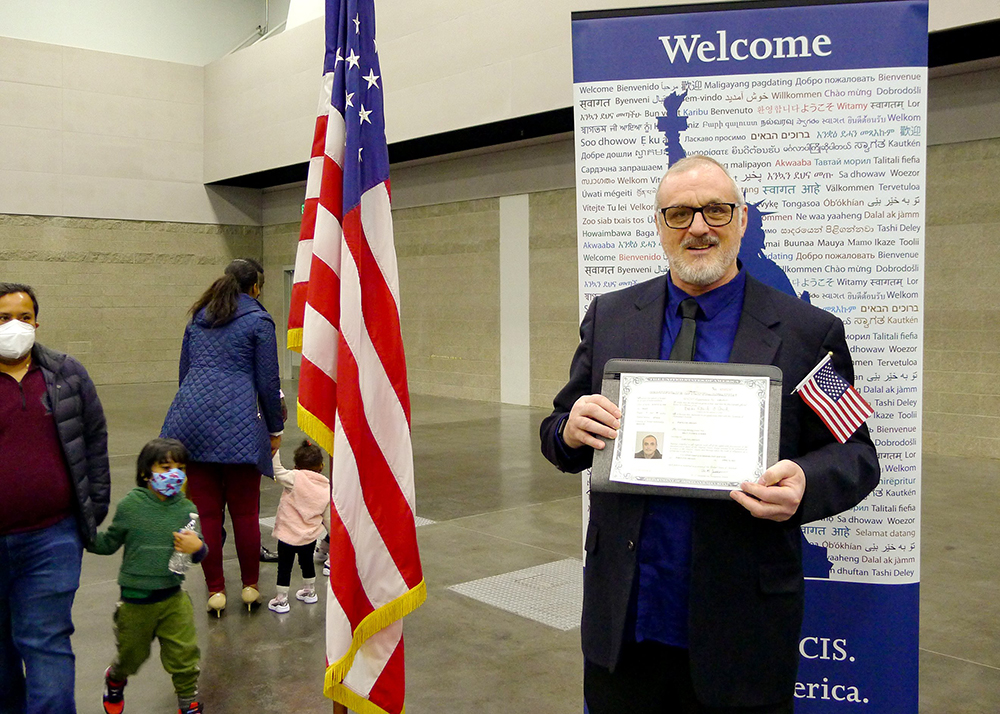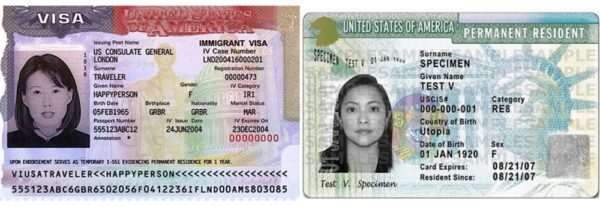
PROSPECT HEIGHTS — Dioceses throughout the U.S. have long relied on foreign-born priests and religious to make up for increasingly fewer vocations each year.
In Brooklyn and Queens, these clergy and sisters speak some 30 languages of the thousands of Catholics from around the world who comprise this “Diocese of Immigrants.”
But now the diocese anticipates disruptive gaps in this pastoral care of immigrants.
That’s because of an administrative backlog that has lengthened the time it takes for foreign-born priests and sisters to obtain their green cards.
Meanwhile, their allotted time on the special religious worker visa is expiring, forcing them to leave the U.S. for at least a year, and putting parishes in a lurch. The situation has jolted Church leaders.
“Honestly, my first response was confusion.” Bishop Robert Brennan said. “Even now, it kind of puzzles me.”
Bishop Brennan noted that foreign-born sisters, seminarians, and priests scrupulously follow rules for visas. They get plenty of assistance and oversight from seminary staff and the personnel officials for the diocese.
“We’re very careful with those things, from getting them the religious visas to observing the appropriate timelines and the deadlines,” Bishop Brennan said. “And then to find out, all the sudden, that somebody who’s been doing everything correctly is now going to have to leave the country for a year — it’s baffling.”
At least 20 priests are expected to face this issue over the next three years, said Father Patrick Keating, moderator of the Curia. He declined to name priests and sisters in this situation “out of an abundance of caution” during their immigration proceedings.
But Father Keating and other officials confirmed that a few departures have begun. A sister from Nigeria has already returned home, and a priest is scheduled to leave in May.
Father Keating holds several jobs in the diocese, including econome and vicar for financial administration.
But, as moderator of the Curia, he holds the top administrative post in the diocese, under Bishop Brennan’s supervision. In that role he explained how the visa problem evolved.

It first came to light last April, Father Keating said, when immigration officials mentioned in their monthly visa bulletin that they had a new interpretation regarding eligibility to apply for the EB-4 employment-based immigrant visa — commonly called the green card.
According to the new interpretation, “Special Immigration Juveniles” — who entered the U.S. at the border with Mexico — were also eligible for the EB-4 visa.
“Those are the unaccompanied minors,” Father Keating said. “If you remember, back in 2014 and 2015, there were many unaccompanied minors — in the thousands.”
He said they came primarily from Central American nations like El Salvador, Guatemala, and Honduras.
But, he added, putting unaccompanied minors into the same category as religious workers has flooded the applications pool for green cards.
“Because of that, there’s a backlog on available visas,” Father Keating said.
It normally takes about five years to process EB-4 applications.
Meanwhile, Father Keating said, a foreign-born priest or religious sister could continue serving in the diocese under a special religious worker visa, the R-1.
This visa is good for two and a half years and renewable once for the same amount of time — a total of five years, and usually enough time to get a green card.
“Previously, there were no issues,” Father Keating said.
But now, R-1 visas are set to expire before green cards can be given to the priests and sisters who began the green card application process after 2018, Father Keating said.
Consequently, if they don’t have their green cards, they must leave the U.S. for a year.
This will have a “ripple effect” on the many people who comprise the diocese, Feather Keating said.
Start with a pastor who relies on a foreign-born parochial vicar to celebrate Mass in his native language. It will be tough to replace, even for a year, a priest whose linguistic and cultural abilities helped him establish a unique rapport with parishioners.
“They might like the style of a priest, or the way his homilies are,” Father Keating said. “He’s approachable and they’re going to him for some spiritual counsel.”
But, he added, the absence of that priest can be “a traumatic moment,” like losing a family member.
The same holds for religious sisters, said Sister Maryann Seton Lopiccolo, the diocese’s delegate for religious. She said sisters are sad and disappointed to face the possibility of leaving their jobs in religious education or health care.
“They set up communities here,” she said. “And then they’re going to have this rotating thing. But you know what? They’re resilient. They will do what they have to do. And we’ll just have to keep abreast of it as best as we can.”
She expressed hope that “Washington will understand the confusion,” but so far, “any appeals haven’t been heard.”
Bishop Brennan said that the U.S. Conference of Catholic Bishops is in conversations with Homeland Security and State Department officials, hoping to stem this unanticipated flow of foreign-born religious workers from the country.
The USCCB has made several suggestions, like shortening the time a priest or sister must leave the U.S., from a year to one month.
There has been no breakthrough.
Bishop Brennan said the interpretation was not made by an act of Congress or an executive order from the president. It was a simple administrative move that, he hoped, could be reversed or revised just as easily.
“Somehow we’ve got to get a solution on this now,” Bishop Brennan said.
